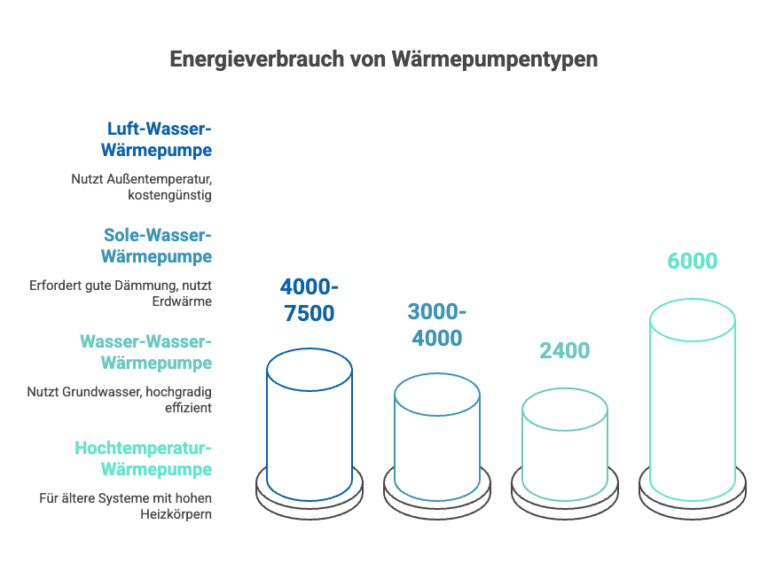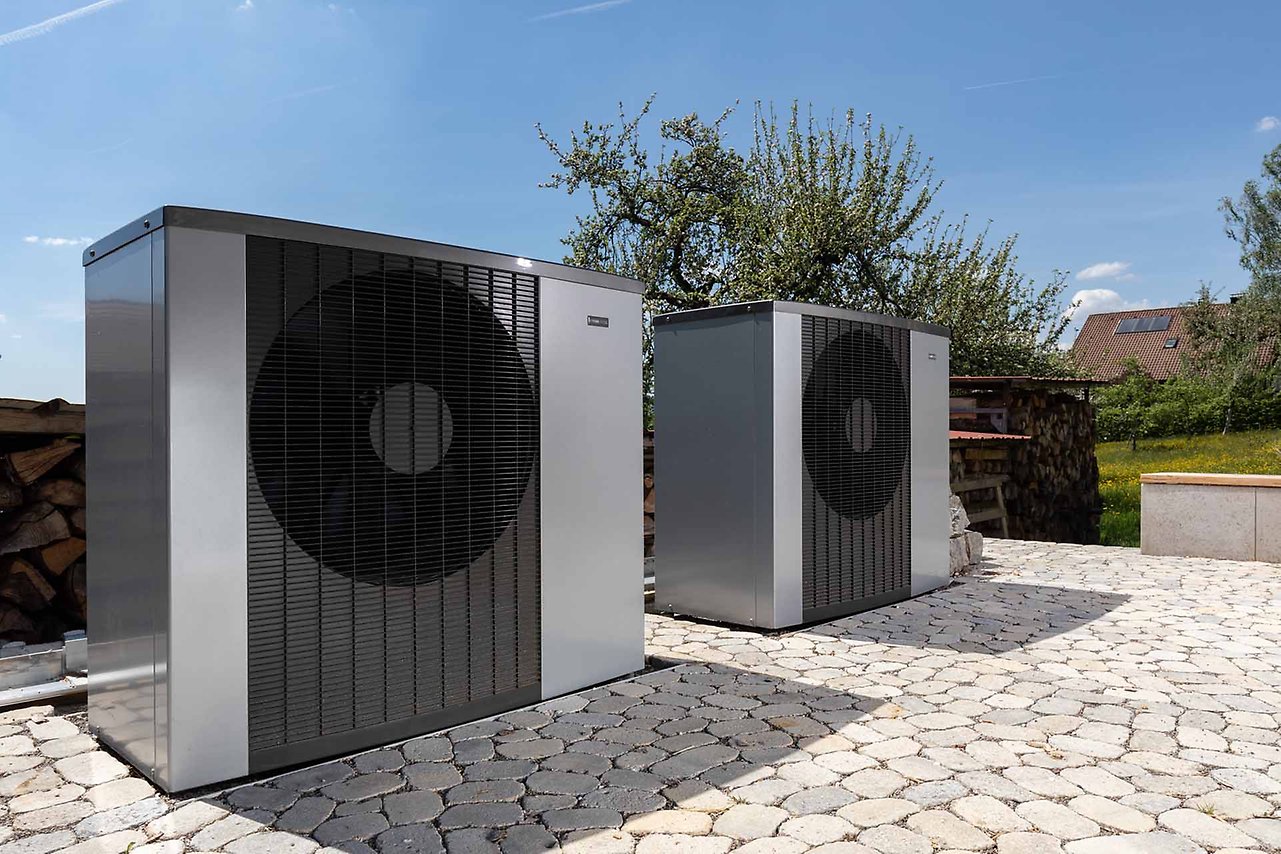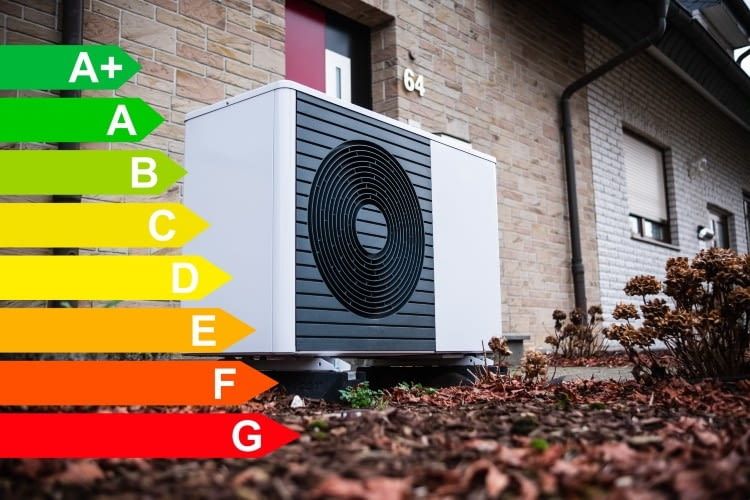Jährlicher Stromverbrauch Einer Luft Wasser Wärmepumpe Erfahrung

Okay, let's talk about something that's both fascinating and, let's be honest, a little daunting: the annual electricity consumption of an air-to-water heat pump. Specifically, let's dive into my *experience*. Think of this as your friendly neighbor, sharing their heat pump saga over a cup of (fair-trade, naturally) coffee.
For years, I relied on a trusty, albeit gas-guzzling, furnace. Last year, spurred on by rising energy costs and a desire to be a slightly better human (climate-wise), I took the plunge and installed an air-to-water heat pump. I envisioned savings, warmth, and maybe even a smug sense of eco-righteousness. What actually happened? Well, it's a bit more nuanced than I expected.
The Numbers Game: kWh and Beyond
First, the nitty-gritty. My annual electricity consumption definitely went up. Before the heat pump, my yearly bill was... let's just say it was lower. Now, adding the heat pump into the equation, I'm using roughly 4,000-6,000 kWh per year *specifically* for heating and hot water. This is for a well-insulated, 120sqm home in a temperate climate, where winter is more *Game of Thrones* "Winter is Coming" than *actual* ice age. Your mileage, as they say, will vary. Think geography, insulation, and how much you like wearing shorts indoors in January.
Pro Tip: Get a smart meter! It's like having a financial advisor for your electricity usage. I can track my consumption in real-time, identify energy vampires (looking at you, ancient refrigerator), and adjust my habits accordingly. Think of it as KonMari for your kilowatt-hours.
But here's the kicker: while my electricity consumption increased, my overall energy bill didn't necessarily skyrocket. Why? Because I ditched the gas bill! The net result was comparable to my gas furnace bill, and on milder winter days, even lower. Plus, I'm no longer contributing to the fossil fuel frenzy. That’s a win in my book.
Factors at Play: More Than Just the Machine
It's crucial to remember that electricity consumption isn't solely dictated by the heat pump itself. Several factors play a significant role:
- The dreaded SCOP: This is the Seasonal Coefficient of Performance. Think of it as the heat pump's fuel efficiency. The higher the SCOP, the more heat you get for your electricity buck.
- Insulation, Insulation, Insulation: Seriously. If your house is leaking heat like a sieve, no heat pump, no matter how efficient, can save you. Investing in good insulation is like buying a warm, comfy blanket for your entire house.
- Radiator type: High-temperature radiators mean your heat pump has to work harder. Underfloor heating is generally more efficient.
- User habits: Do you crank up the thermostat to sauna-like temperatures the moment you get home? Probably not ideal.
Fun Fact: Did you know that heat pumps were first invented in the mid-19th century? They've come a long way since then, but the basic principle remains the same: using electricity to move heat, not create it.
The Unexpected Perks (and Quirks)
Beyond the numbers, there are other aspects to consider. Heat pumps are generally quieter than gas furnaces. I can finally hear the birds chirping without the constant hum of the old furnace. And the consistent, gentle warmth is far more pleasant than the on-off blast of hot air I was used to.
However, there are quirks. During extremely cold snaps, the heat pump might struggle a bit. Mine has an electric resistance heater as a backup, which is essentially a very expensive space heater. This kicks in automatically when the heat pump can't keep up, and *really* bumps up the electricity consumption. It's like the emergency donut you keep in your glove compartment – good in a pinch, but not something you want to rely on daily.
Practical Tip: Look into getting a grant or subsidy. Many governments offer financial incentives for installing heat pumps, which can significantly offset the initial cost.
So, Was it Worth it?
Overall, my experience with an air-to-water heat pump has been positive. Yes, my electricity consumption went up, but my overall energy costs are manageable, and I'm contributing less to climate change. It's not a perfect solution, but it's a step in the right direction.
Perhaps more importantly, it's made me more aware of my energy consumption in general. I'm now more mindful of turning off lights, unplugging appliances, and making conscious choices about how I use energy. It's a small change, but these small changes, collectively, can make a big difference.
The next time you’re enjoying a comfortably heated home, think about where that warmth comes from. Maybe, just maybe, you'll consider joining the heat pump revolution.




